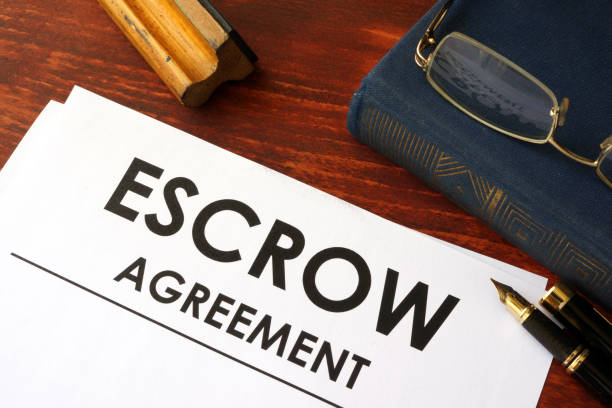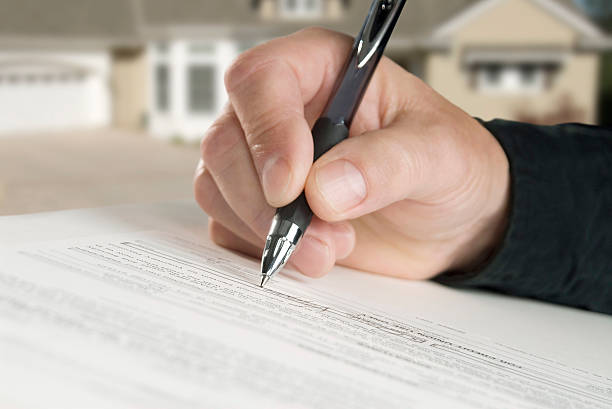
Are you confused about what to expect when escrow closes? The escrow process is a crucial component of real estate transactions, providing a secure and neutral intermediary for transferring funds, documents, and other assets between parties involved in a sale or other financial agreements. The escrow closes when all the outlined terms are met, and the transaction is completed.
A series of processes occur during the escrow closing process, each playing a critical role. This article will give you a comprehensive view of what to expect when escrow closes, the steps involved in closing processes, and other essential areas you need to know about the closing process.

Disclosure: My site is reader-supported. I may get commissions when you click through the affiliate links (that are great products I use and stand by) on my articles.

What To Expect When Escrow Closes
- Are you confused about what to expect when escrow closes?
- The escrow process is a crucial component of real estate transactions, providing a secure and neutral intermediary for transferring funds, documents, and other assets between parties involved in a sale or other financial agreements.
What Does Mean To Close Escrow
To “close escrow” means that the escrow process has been completed successfully, and all the necessary steps to finalize a real estate transaction have been fulfilled. Closing escrow signifies the official transfer of ownership from the seller to the buyer, and all funds and documents required for the transaction have been exchanged and properly processed.
Once the escrow process is closed, the real estate transaction is finalized, and the property officially belongs to the buyer. Closing escrow is a significant milestone in a real estate deal, and it often marks the end of a sometimes complex and detailed process. It is typically handled by a neutral third-party, such as a title company or an escrow officer, to ensure a smooth and secure transaction for both the buyer and the seller.
What To Expect When Escrow Closes
 When escrow closes, the process of transferring funds and documents has been completed, and the property ownership is officially transferred from the seller to the buyer. What to expect when escrow closes may vary depending on the specific transaction and local regulations, but here are some general steps and aspects to consider:
When escrow closes, the process of transferring funds and documents has been completed, and the property ownership is officially transferred from the seller to the buyer. What to expect when escrow closes may vary depending on the specific transaction and local regulations, but here are some general steps and aspects to consider:
Finalizing paperwork
During closing, the buyer and seller must sign various legal documents, including the deed, bill of sale, and any other required paperwork. The closing agent, typically a title company or an escrow officer, will ensure that all documents are properly executed and notarized.
Transfer of funds
The buyer will be required to provide the remaining balance, which is usually paid through a cashier’s check or wire transfer. The closing agent will also distribute funds to the seller, paying off any outstanding mortgage or liens and deducting closing costs and fees.
Title transfer
The property title is officially transferred to the buyer. The closing agent or provider will record the deed with the appropriate government agency to officially document the change in ownership.
Disbursement of funds
The closing agent will disburse funds to various parties engaged in the transaction, including the real estate agents, lenders, and service providers.
Closing costs
The buyer and seller will pay their respective closing costs, which include fees for title insurance, appraisal, inspections, and other services.
Prorated expenses
Certain expenses, such as property taxes and utility bills, may be prorated based on the closing date. The closing agent will ensure that these prorated amounts are calculated accurately and paid accordingly.
Final walkthrough
In some cases, the buyer may perform a final walkthrough of the property to ascertain that everything is in the agreed-upon condition before closing.
Closing statement
A closing or settlement statement will be provided to both the buyer and seller, detailing all financial transactions related to the closing.
Delivery of keys
Once the closing process is completed, the buyer will receive the keys to the property, officially taking possession of the home.
The closing process can be complex, but a competent closing agent or attorney will guide you to ensure a smooth and successful closing. It’s essential to review all documents carefully and ask any questions you may have during the process.
Is There a Difference Between the Close of Escrow and the Closing Date

“Close of escrow” and “closing date” are terms used in real estate transactions but refer to slightly different points. :
The “close of escrow” refers to when all the terms and conditions of the purchase agreement have been fulfilled, and the real estate transaction is completed. It signifies the point at which the escrow process is finalized and property ownership is officially transferred to the buyer. At the close of escrow, all necessary documents have been signed, all funds have been transferred, and the deed has been recorded with the appropriate government agency to reflect the new ownership. In some regions, the close of escrow may be synonymous with the “settlement” or “completion” of the transaction.
On the other hand, the “closing date” refers to the date specified in the purchase agreement when the buyer and seller agree to complete the property transaction. It is a crucial date in the real estate contract as it sets the timeline for completing all the necessary tasks before closing escrow.
On the closing date, the buyer typically provides the remaining funds to complete the purchase, including the down payment and closing costs. If the buyer obtains a mortgage fo finance the property, the lender will also fund the loan on or before this date.
The closing date varies depending on the terms negotiated between the buyer and seller. It is usually agreed upon during the initial stages of the purchase contract. It can be influenced by factors such as the time needed for inspections, loan processing, and other contingencies.

What To Expect When Escrow Closes
- Are you confused about what to expect when escrow closes?
- The escrow process is a crucial component of real estate transactions, providing a secure and neutral intermediary for transferring funds, documents, and other assets between parties involved in a sale or other financial agreements.
What Are The Steps Involved When Closing Escrow

Closing escrow involves several essential steps to complete a real estate transaction successfully. Here are the typical steps involved in closing escrow:
Purchase Agreement
The process begins with the signing of a purchase agreement between both parties. This document states the terms of the sale, including the purchase price, closing date, contingencies, and other relevant details.
Opening Escrow
Once the purchase agreement is agreed upon and signed, the buyer, seller, or their real estate agent opens an escrow account with a neutral third-party entity, often a title company or an escrow company. The escrow company acts as the intermediary and holds all documents and funds related to the transaction.
Buyer’s Due Diligence
The buyer typically conducts inspections and other due diligence on the property to ensure it meets their expectations and that there are no significant issues. The buyer may negotiate repairs or credits with the seller during this period based on the inspection results.
Title Search and Title Insurance
The title company carries out a title search to verify the property’s ownership history and ensure there are no liens or other encumbrances on the property. The buyer may purchase title insurance to protect against any title-related issues that may arise in the future.
Mortgage and Financing

If the buyer obtains a mortgage, they will work with their lender to secure financing. The lender will require various documents, such as income verification and property appraisal, to approve the loan.
Finalizing Documents
As the closing date approaches, the buyer and seller provide the necessary documents and information to the escrow company. These documents include the deed, bill of sale, loan documents (if applicable), and any other paperwork required to transfer ownership and complete the transaction.
Documents Review and Signing
The escrow company reviews all documents to ensure they are completed accurately and comply with the purchase agreement. Once everything is ready, the buyer and seller sign the necessary documents.
Transfer of Funds
The buyer provides the remaining balance of the purchase price, the down payment, and closing costs. If the buyer obtains a mortgage, the lender sends the loan funds to the escrow account. The escrow company then disburses these funds to the seller, paying off any outstanding mortgage or liens and distributing the remaining proceeds to the seller after deducting closing costs and fees.
Recording the Deed
After all the funds and documents have been processed, the escrow company records the new deed with the appropriate government agency to officially transfer ownership to the buyer.
Closing Statement
The buyer and seller receive a closing statement, which provides an itemized breakdown of all financial transactions related to the closing. This statement details both parties’ costs, credits, and prorated expenses.
Possession and Key Transfer
After the closing, the buyer receives the keys to the property and officially takes possession of the home.
Once all these steps have been completed, the escrow process is closed, and the real estate transaction is considered finalized. Closing escrow typically involves the coordination of the buyer, seller, real estate agents, lenders, title companies, and escrow officers to ensure a smooth and successful transaction.

What To Expect When Escrow Closes
- Are you confused about what to expect when escrow closes?
- The escrow process is a crucial component of real estate transactions, providing a secure and neutral intermediary for transferring funds, documents, and other assets between parties involved in a sale or other financial agreements.
People Also Ask
What is the Most Important Document When Closing Escrow?
The most important document at the closing of escrow is typically the Deed. The deed is a legal document that helps to t ownership of the property from the seller (grantor) to the buyer (grantee). It is a critical document as it officially and legally establishes the buyer as the property’s new owner.
The deed includes essential information, such as the names of the buyer and seller, a legal description of the property, and details about the transfer of ownership. It must be executed (signed) and notarized by the seller to be valid.
Once the deed is signed, it is recorded with the appropriate government agency. Recording the deed makes the transfer of ownership a matter of public record, providing notice to the public that the property has changed hands and protecting the buyer’s rights as the new owner.
While other documents are also critical in the closing process, such as the purchase agreement, closing statement, loan documents (if applicable), and title insurance policy, the deed is the document that completes the transfer of ownership, making it the most important document at closing escrow.
What Is The Best Day To Close Escrow?
The best day to close escrow can vary depending on several factors. However, the end of the month is a popular time for closing escrow, as it can offer some financial advantages. For example, if the buyer closes near the end of the month, they may have to pay fewer days of prepaid interest on their mortgage, resulting in lower initial mortgage payments.
Also, opt for a weekday for closing, as most real estate professionals and financial institutions operate during regular business hours. Closing on a weekday allows for a smoother process, access to necessary services, and quicker resolution of potential issues.
Ultimately the best day to close escrow is a decision that should be made collaboratively between the buyer and the seller after considering the essential factors.
How Long Do You Have To Wait After Closing Disclosure?
The waiting period between the closing disclosure and the consummation date is usually three days for traditional mortgages. The three business-day rule was enforced in October 2015 and applies to refinancing and original mortgages.
Conclusion
Most times, escrow can be complicated as the process varies to the specific details of the transaction and local regulations, so it is advised to work with a reliable escrow agent or service provider to streamline the process. Escrow closing helps indicates that the deal is completed and the buyer has gotten the key and documentation of the properties. Note that an escrow can only be closed when the outlined terms and conditions are all fulfilled.






